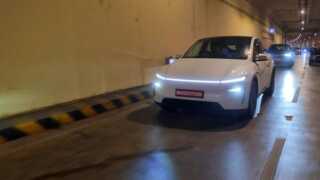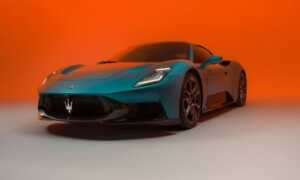Share via: Luxury electric cars in India are facing an upward tax revision under the GST 2.0. Luxury electric cars in India are facing an upward tax revision under the GST 2.0. View Personalised Offers on Check Offers The GST Council has proposed a steep hike in the consumer levy on luxury electric cars that are priced above ₹40 lakh. This move could impact sales of the electric cars from the car manufacturers such as Tesla, Mercedes-Benz, BMW, and BYD in India. An interesting fact is that the proposal from the GST Council comes at a time when the auto industry is awaiting a simplified GST structure that is expected to bring down the tax rates for automobiles in India, as Prime Minister Narendra Modi hinted during his speech on August 15. PM Modi hinted that the government is working on a simplified GST regime. Being dubbed as GST 2.0, under this regime, the tax structures would be less than the current slabs. There would be two slabs – five per cent and 18 per cent compared to the current slabs. Besides that, there would be a 40 per cent slab for the luxury goods and services. The tax reform move comes at a time when the Indian government is pushing for higher domestic consumption amid its souring relations with the US due to the high tariffs the latter has imposed on India. Under the GST 2.0, the cars, barring the luxury ones, would be taxed at a rate of 18 per cent, down from the current 28 per cent, which would bring down the total tax incidence for the car buyers significantly. Right during the festive season, this move is expected to boost the car sales in India, giving the industry a much sought-after relief at a time when the sector has been reeling under pressure owing to dampened sales for the last few months. Luxury electric cars: What GST Council proposed?News agency Reuters has reported that the GST Council has recommended raising the GST rate to 18 per cent from five per cent currently for electric vehicles that are priced between ₹20 lakh and ₹40 lakh. The panel also reportedly proposed hiking the tax to 28 per cent for cars that are priced above ₹40 lakh, saying that such vehicles cater to the upper segment of society and are largely imported rather than manufactured domestically. However, the government has simultaneously decided to do away with the 28 per cent tax slab altogether, leaving the GST Council with the option to increase the tax on EVs to 18 per cent from the current five per cent, or put them in the newly planned 40 per cent category carved out for certain luxury goods. The GST Council – chaired by the Finance Minister Nirmala Sitharaman and having members from all Indian states – is meeting on September 3-4 to review the proposals. Steep levies pose a major blow to luxury carmakersThe Indian electric car market is small, making up about five per cent of total cars sold in April to July this year, but growth in the segment has been rapid, as electric car sales in India grew 93 per cent to 15,500 units during that period. A government document, detailing the tax panel’s recommendations, said that the uptake of electric vehicles is increasing, and while the low rate of five per cent is to incentivise faster adoption of electric vehicles, it is also important to signal that higher-priced EVs can be taxed at higher rates. The proposal, if materialised, would directly impact the EV sales of brands like Mercedes-Benz, BMW, BYD and Tesla. Besides that, it could affect domestic EV makers such as Mahindra and Tata Motors, though their offerings above the ₹20 lakh price range are limited. Most of the impact will be on foreign automakers offering high-end EVs stand to be hit harder. Tesla just launched its Model Y in India, while Mercedes-Benz, BMW and BYD also offer top-end luxury electric cars. Carmakers lobby for maintaining current EV tax ratesCarmakers have unanimously called for maintaining the five per cent GST rate to avoid disrupting India’s EV aspirations and targets. Tata Motors said that the tax rate for EVs must be retained, as any hikes will slow the transition to clean mobility. BMW India, which is investing in expanding its EV portfolio in the country, said an increase can derail the vision of high electric adoption and local production. Mercedes-Benz said that an upward revision would mostly impact the entry-level luxury cars, and its top-end luxury EVs will not be impacted much. Check out Upcoming EV Cars in India. First Published Date: 03 Sept 2025, 08:42 am IST
Source: hindustantimes.com






